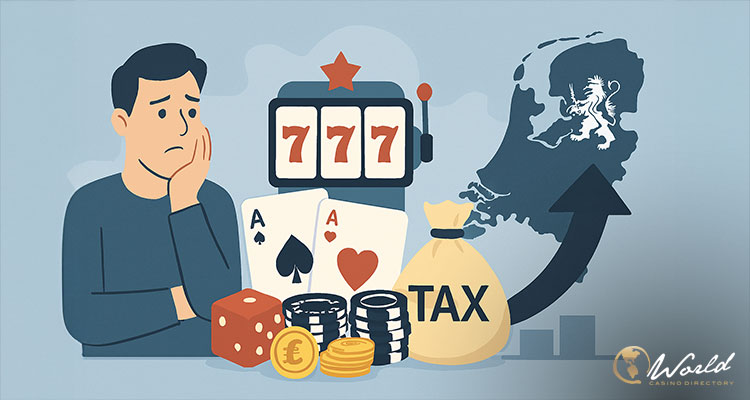The Netherlands’ recent hike in gambling tax, from 30.5% to 34.2%, has failed to achieve the government’s intended goal of increasing tax revenues. Despite the higher tax rate, the first half of 2025 saw a significant drop in tax collection, amounting to a €30 million shortfall compared to the same period in 2024. The Dutch Gambling Authority (KSA) conducted an impact assessment, revealing that the expected revenue boost was not realized. The increase has led to declines in both online and land-based gambling revenue, negatively impacting the overall tax receipts.
Unintended Consequences of the Tax Increase
The higher tax rate has put pressure on gambling operators, forcing them to reduce costs in various ways, such as cutting back on advertising and lowering payout ratios. As a result, players are turning to illegal casinos, where they find higher bonuses and more favorable payouts. KSA Chairman Michel Groothuizen expressed concern, stating that this trend is undermining the goal of protecting players and providing a safe, regulated environment for gambling.
The increase in the gambling tax rate, implemented in January 2025, was intended to raise government revenue. However, the KSA’s report indicates that this goal has not been met. The assessment found that gross gaming revenue (GGR) in the online market decreased by 8% in the first quarter of 2025 compared to the previous quarter, while land-based casinos saw a 4% decline in the same period. This decrease in GGR is partly due to the new regulations, including player protection measures, which are putting additional financial strain on operators.
Land-based gambling venues have been hit particularly hard by the tax increase. The number of these establishments dropped by 9% in the first quarter of 2025 compared to the previous quarter, marking an accelerated decline from the previous average of 6% per year. Online operators, on the other hand, have more flexibility to adjust their operations, such as changing payout percentages and reducing operational costs, which has helped them absorb some of the impact. Nevertheless, even they are feeling the financial pressure.
Shifting Players to the Unlicensed Market
One of the unintended consequences of the tax increase has been a shift in gambling behavior. The KSA’s report reveals that a significant portion of gambling money, roughly half of it, is now flowing through illegal, unlicensed operators. These illicit platforms are able to offer higher bonuses, better payout ratios, and fewer restrictions, making them an attractive alternative for players. As a result, the legal market is seeing a decline in both players and revenue, while illegal gambling is flourishing.
The KSA has warned that this shift to the unlicensed market could jeopardize the government’s long-term goal of creating a secure and regulated gambling environment. Groothuizen stated that the current situation, where financial pressures are forcing operators to make less favorable decisions for players, conflicts with the primary goal of ensuring a protected gaming environment. If the gambling market is to remain financially viable and secure, a strong, responsible, and legally compliant operator base is essential.
In response to the negative impact of the tax hike, industry players, including the Dutch Gambling Providers’ Association (VNLOK), have called for a reevaluation of the current tax rate. They have proposed freezing the gambling tax rate at 34.2% while further investigating its effects on the market. VNLOK emphasizes that the government must focus on more effectively addressing the growing illegal gambling market and implementing policies that will prevent players from seeking unlicensed operators.
The Dutch gambling sector is facing a crossroads, with the government’s policy choices putting pressure on operators and players alike. As the KSA continues to monitor the situation, it is becoming increasingly clear that a balance needs to be struck between player protection, revenue generation, and market stability.


